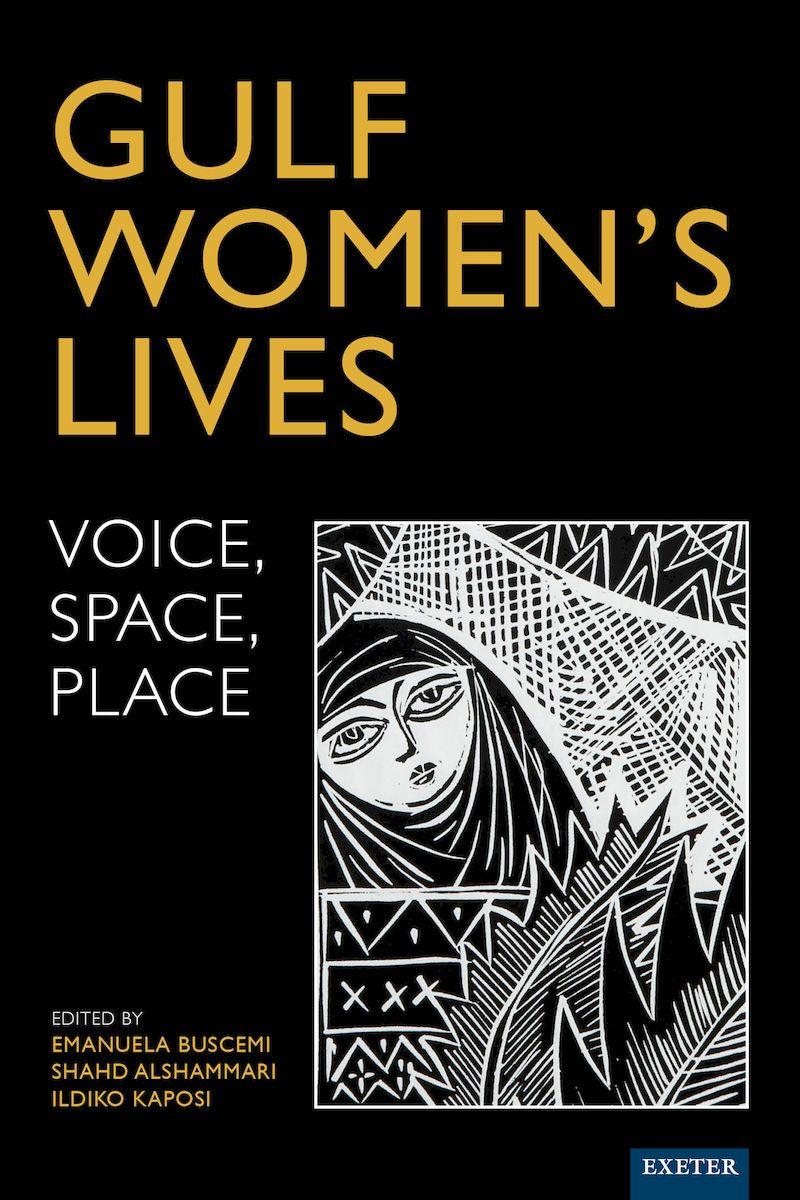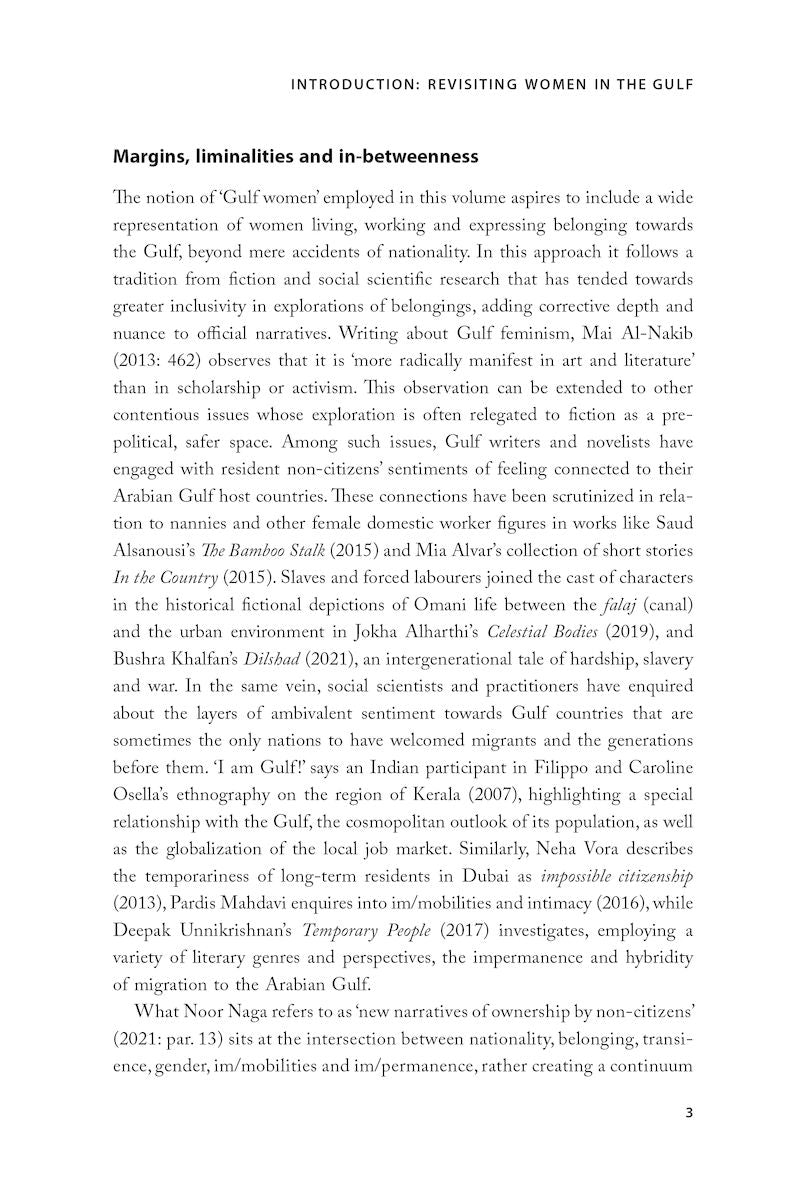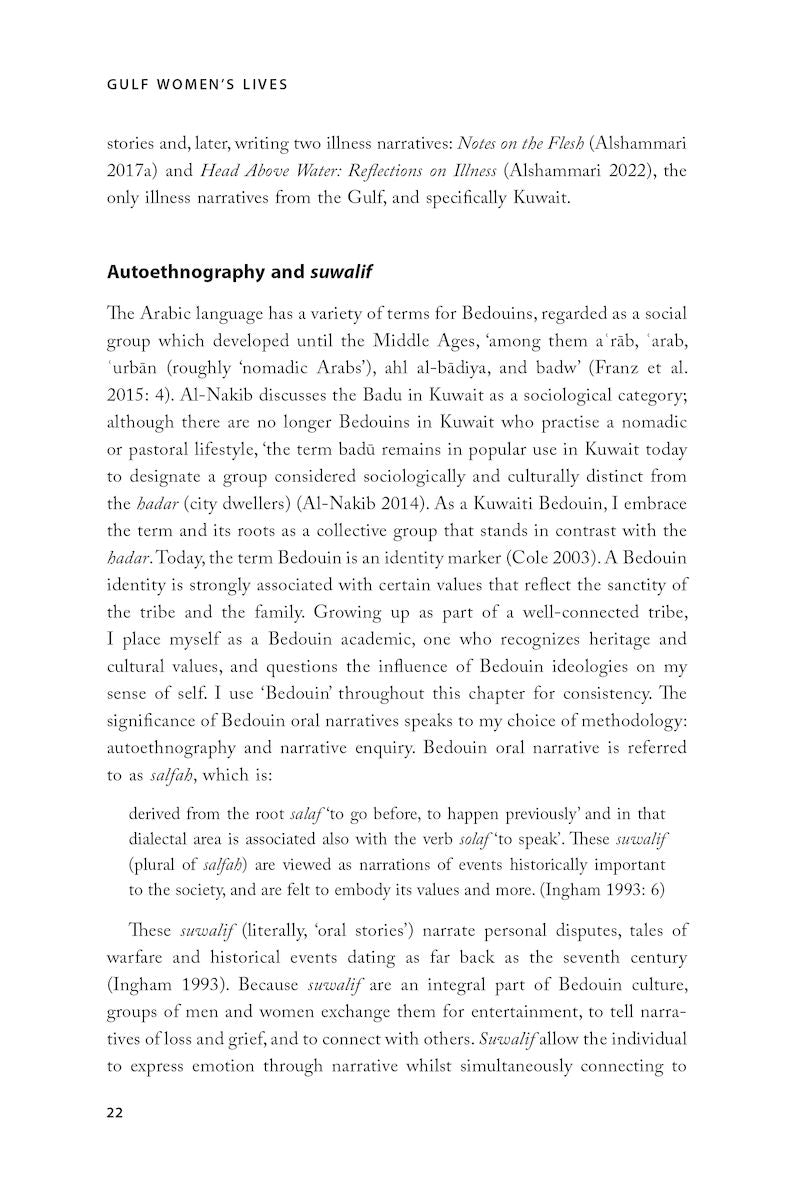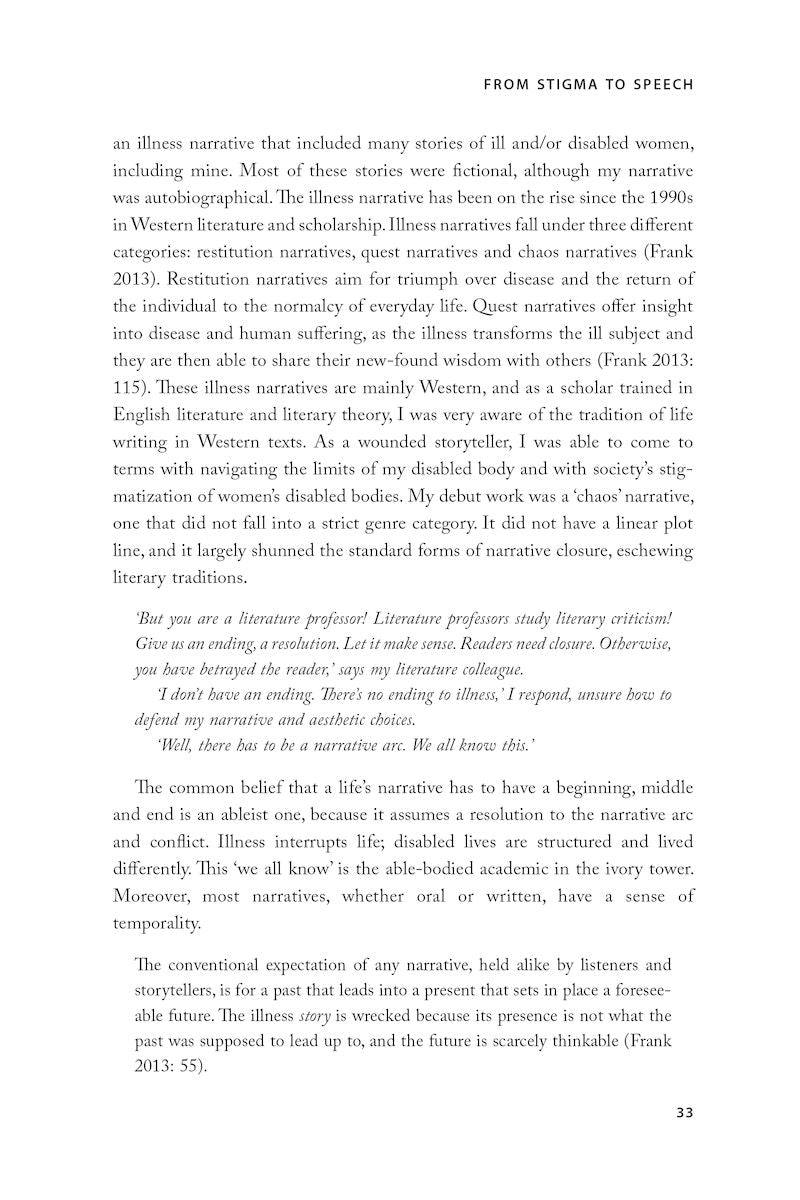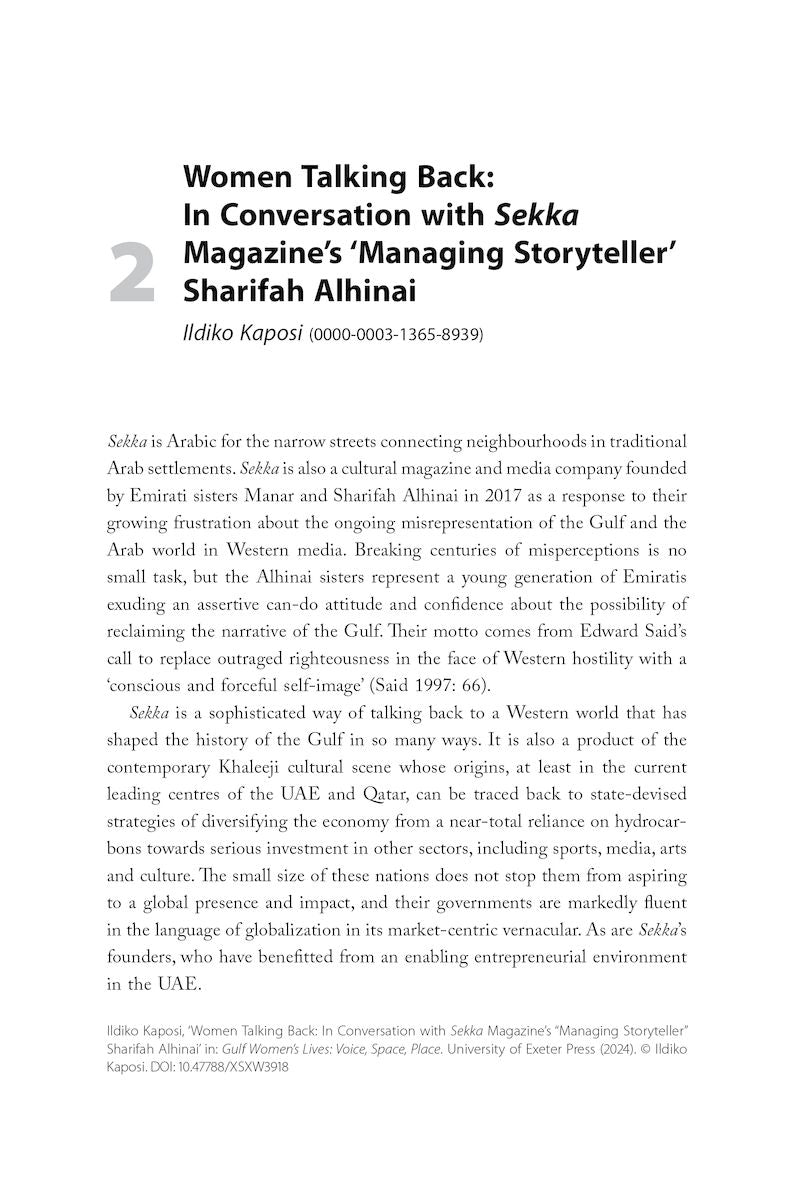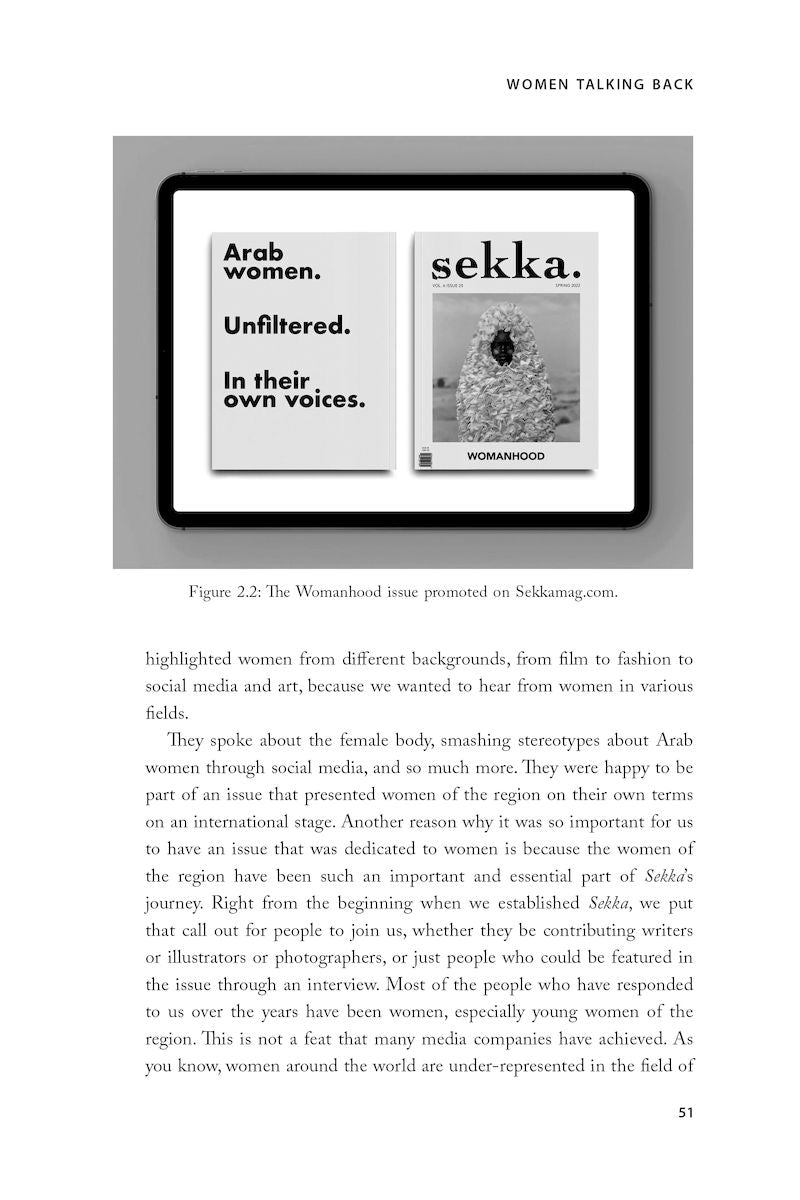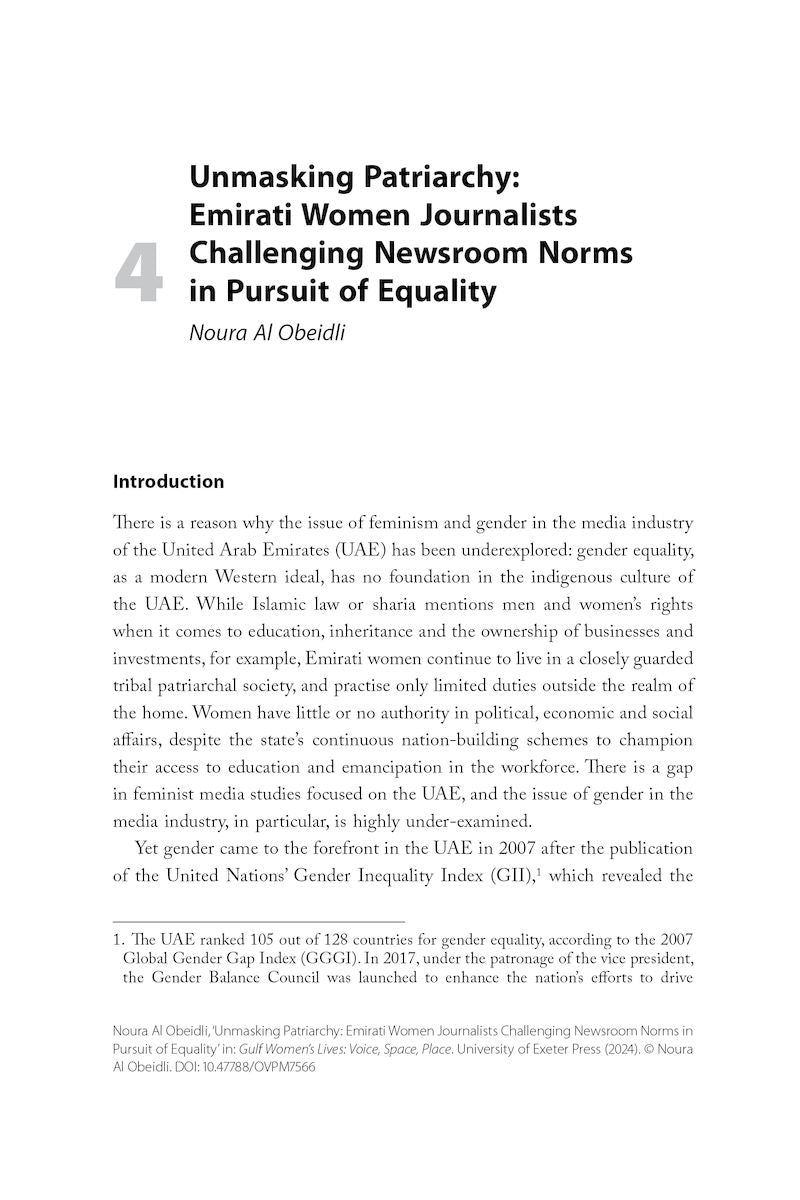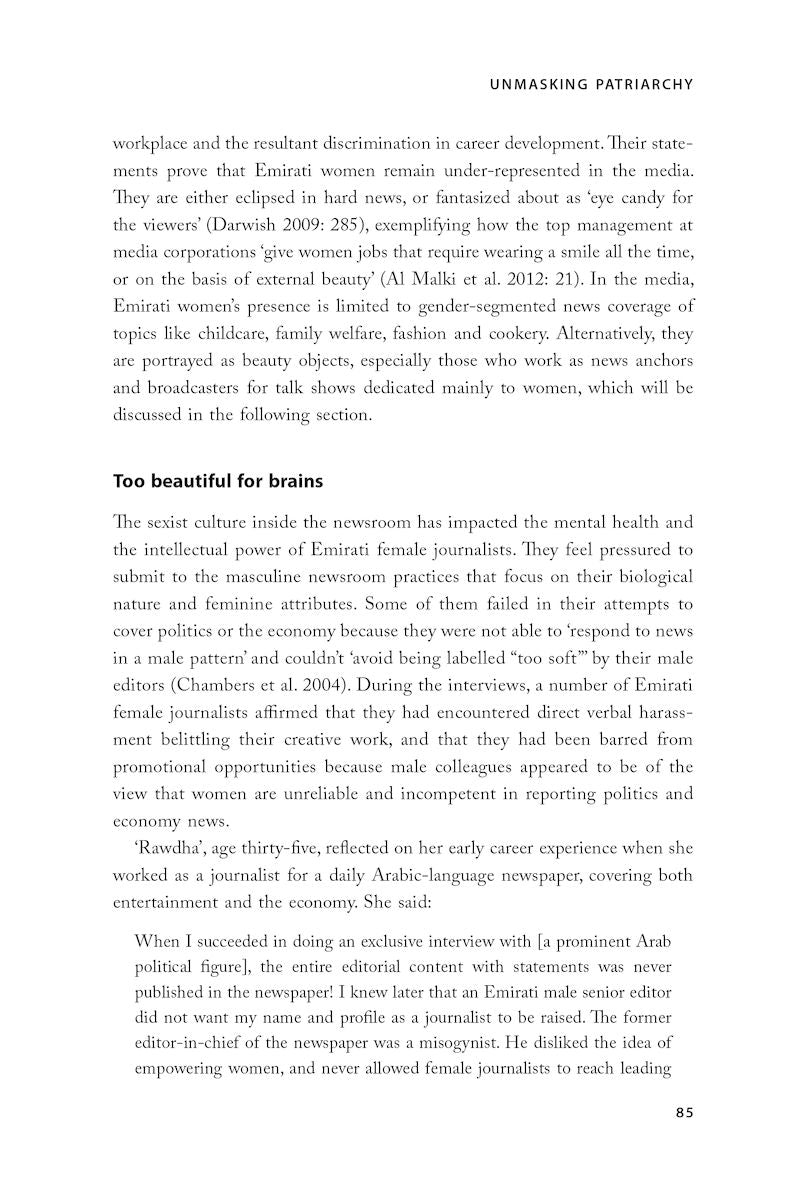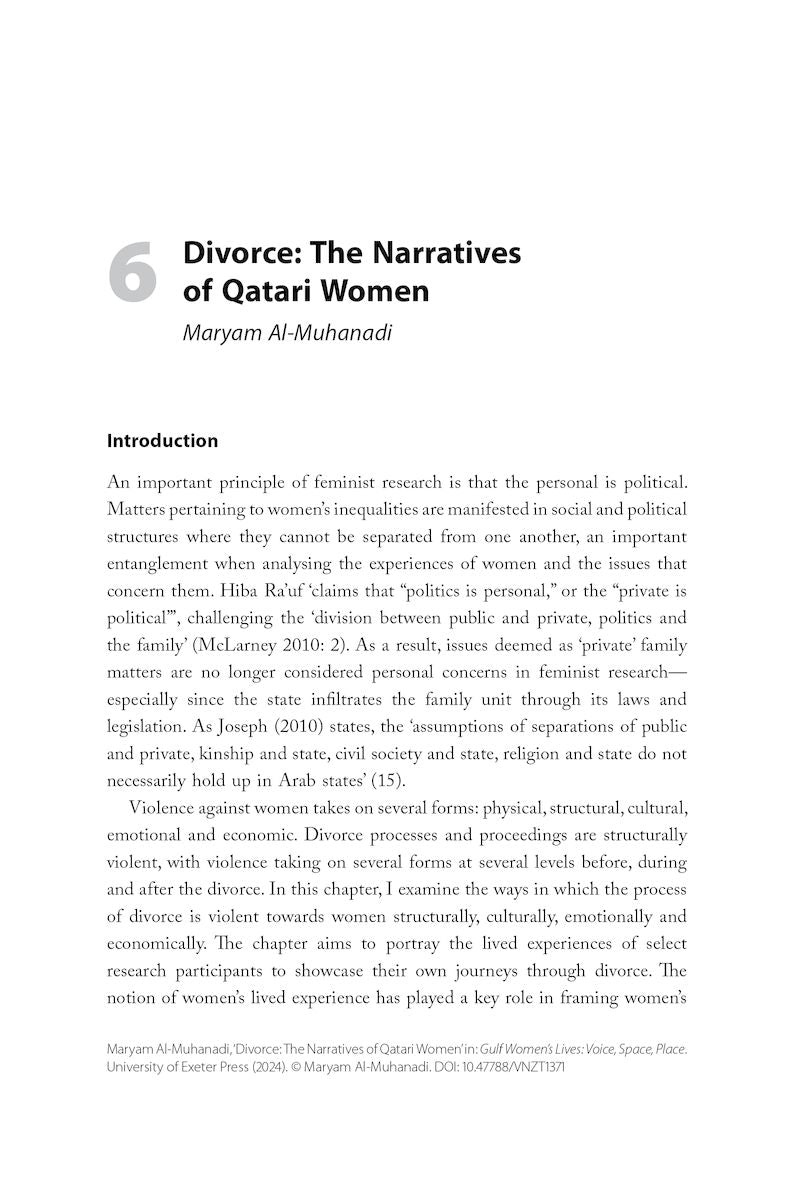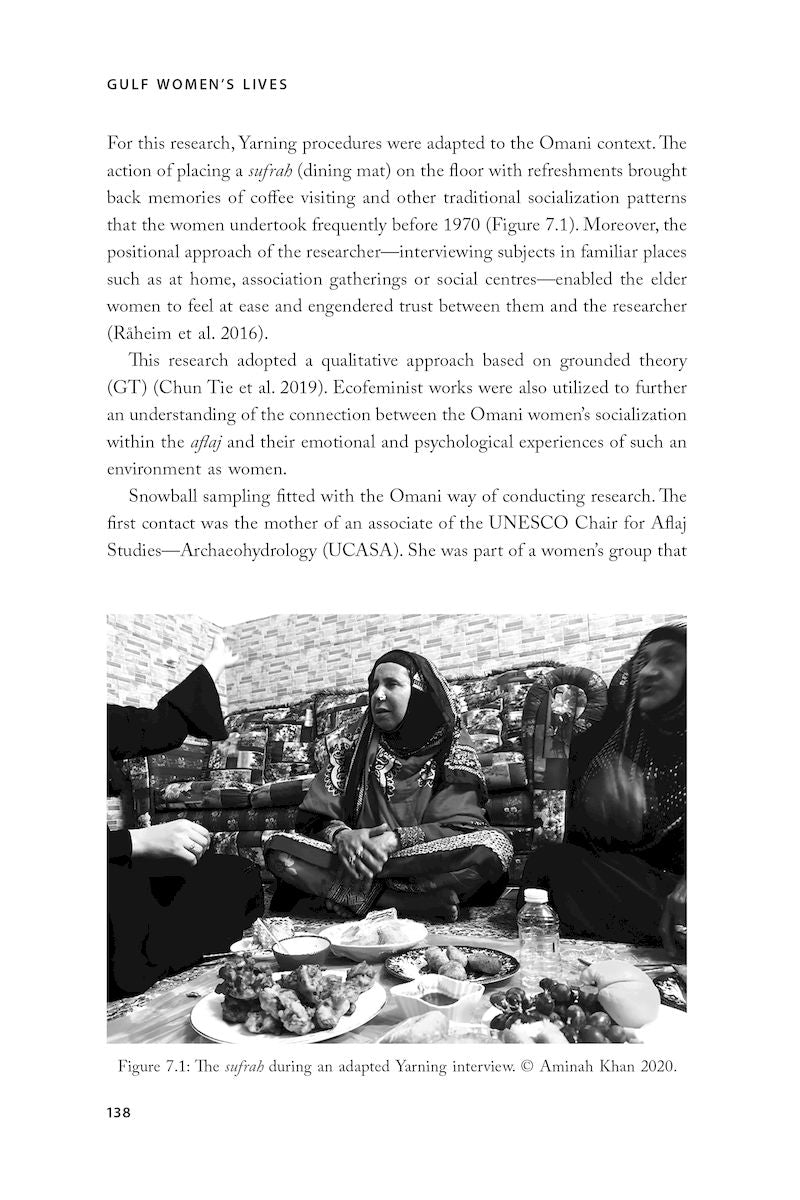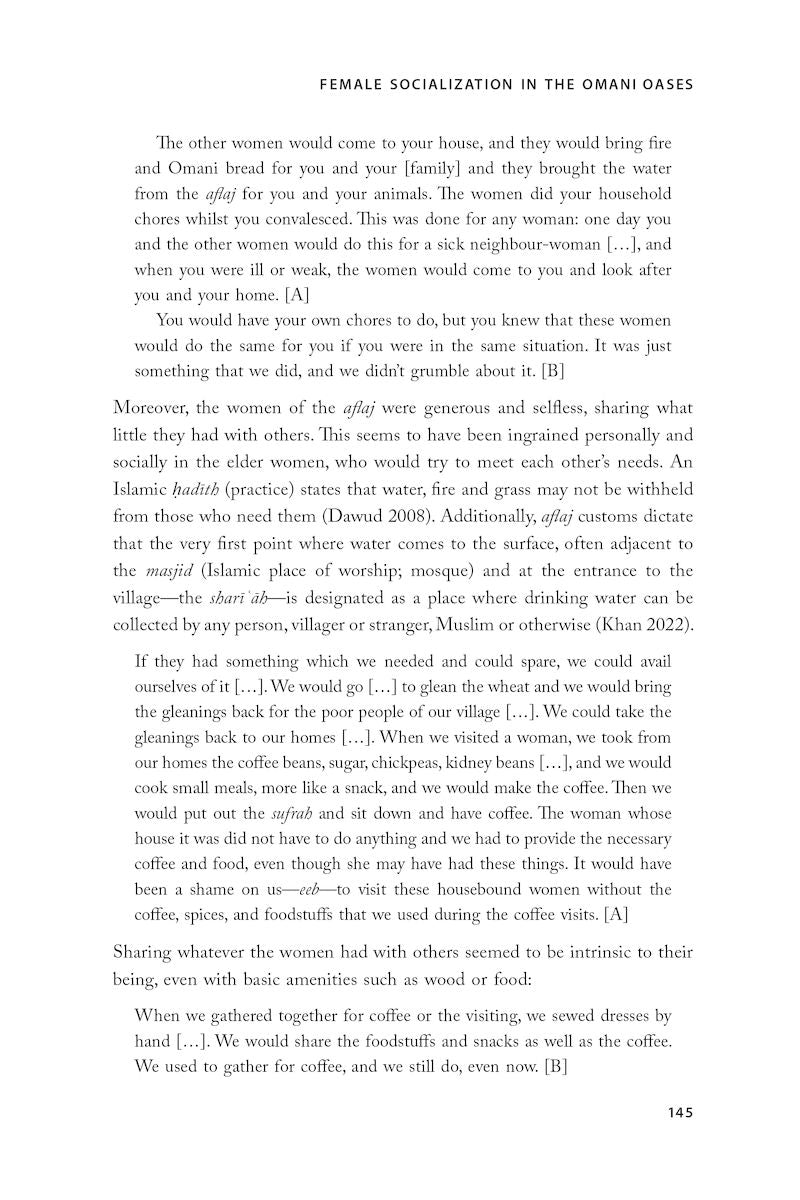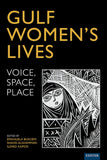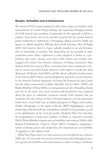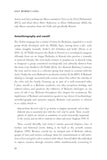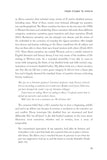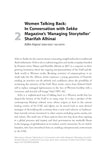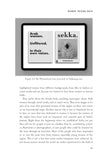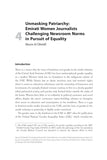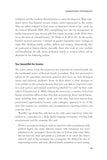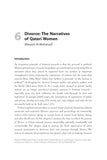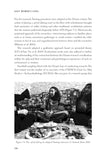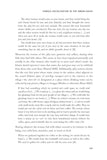University of Exeter Press
Gulf Women’s Lives
Voice, Space, Place
Couldn't load pickup availability
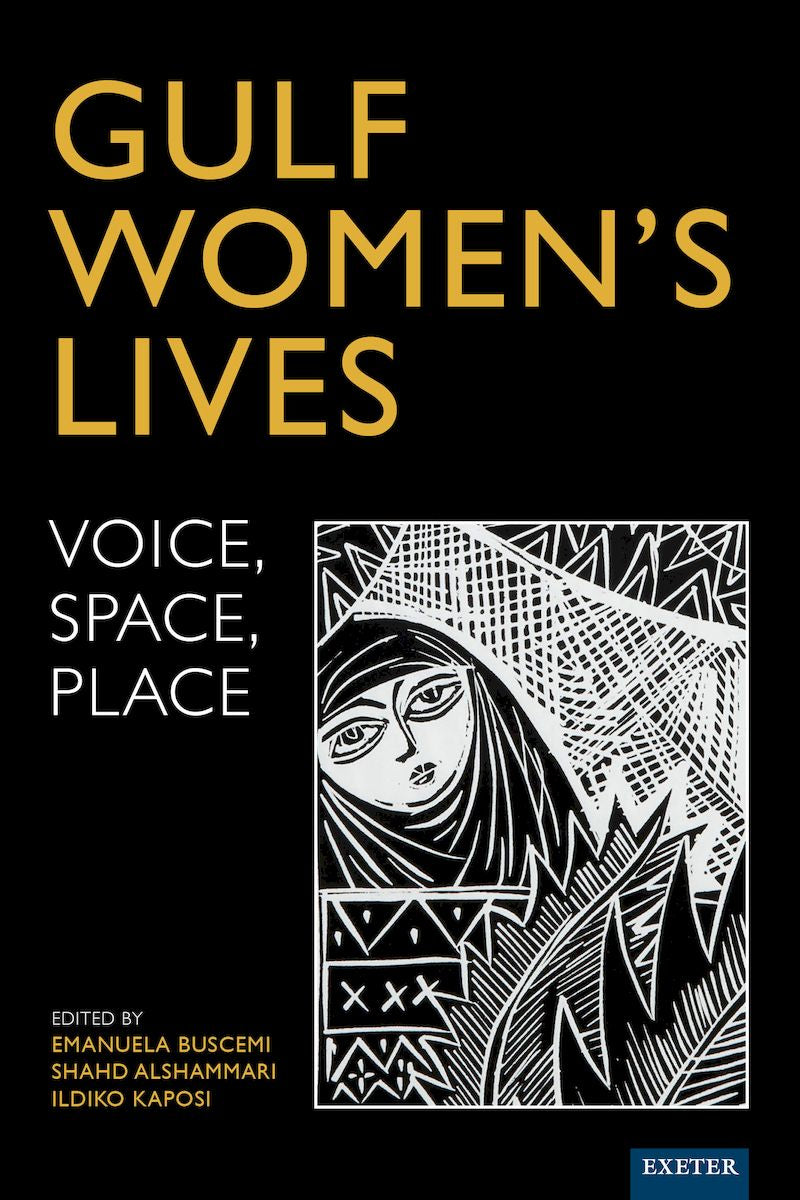
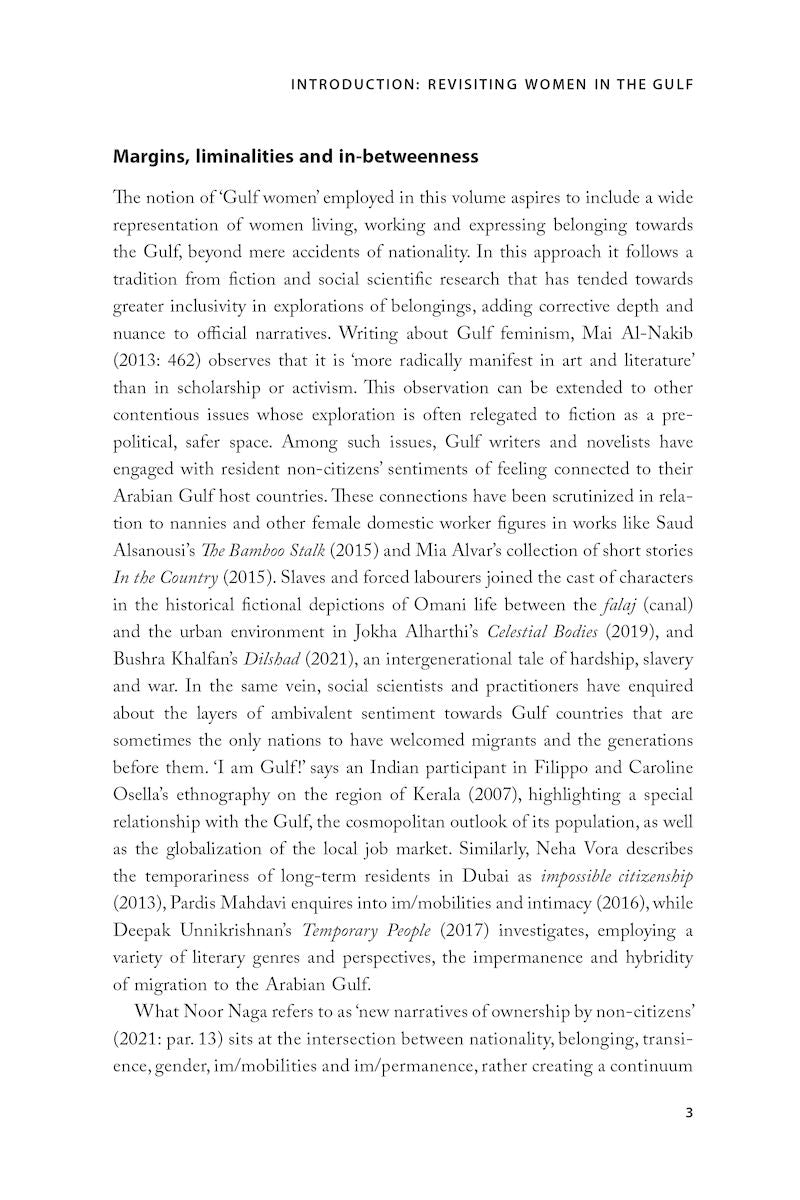
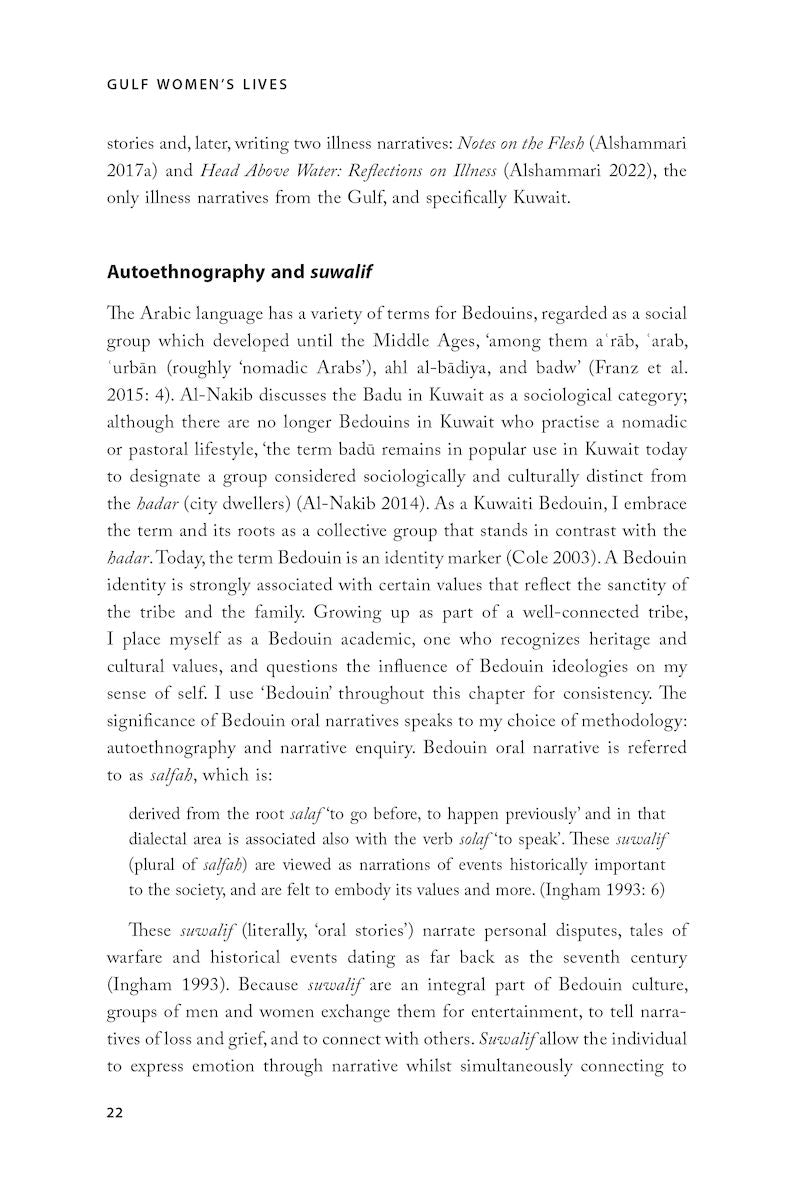
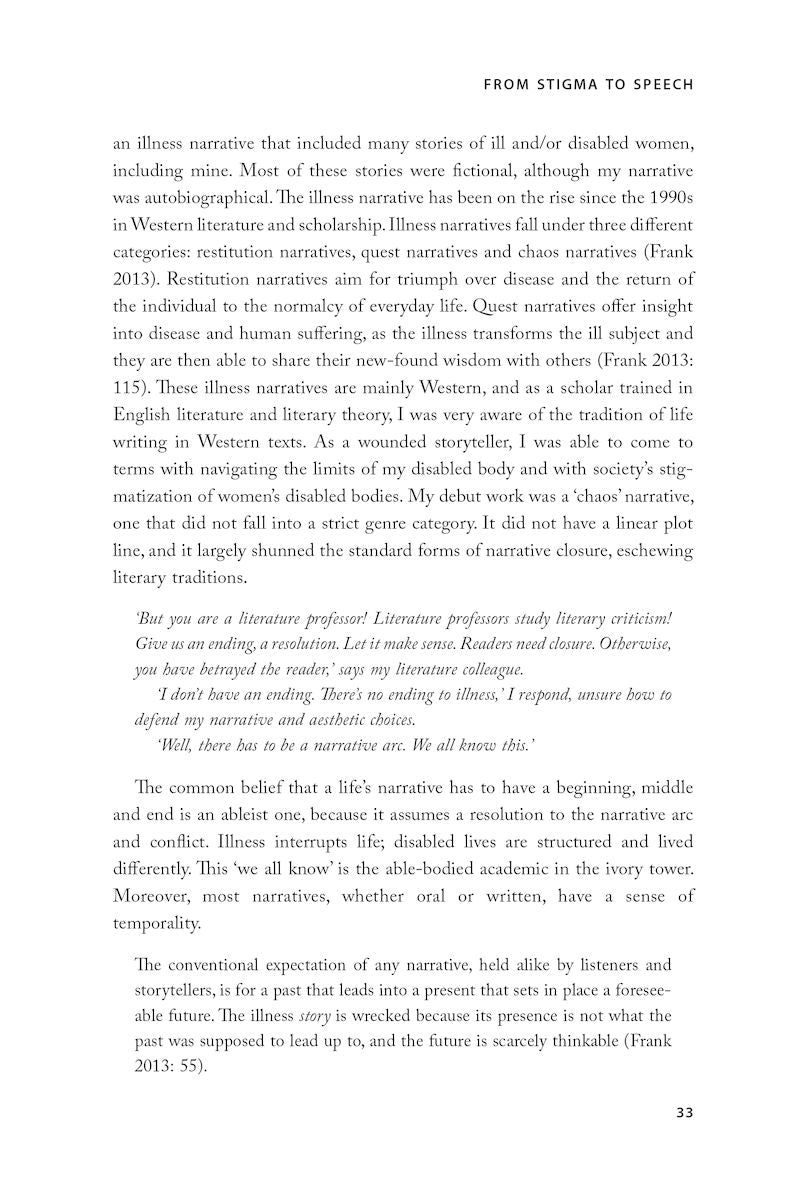
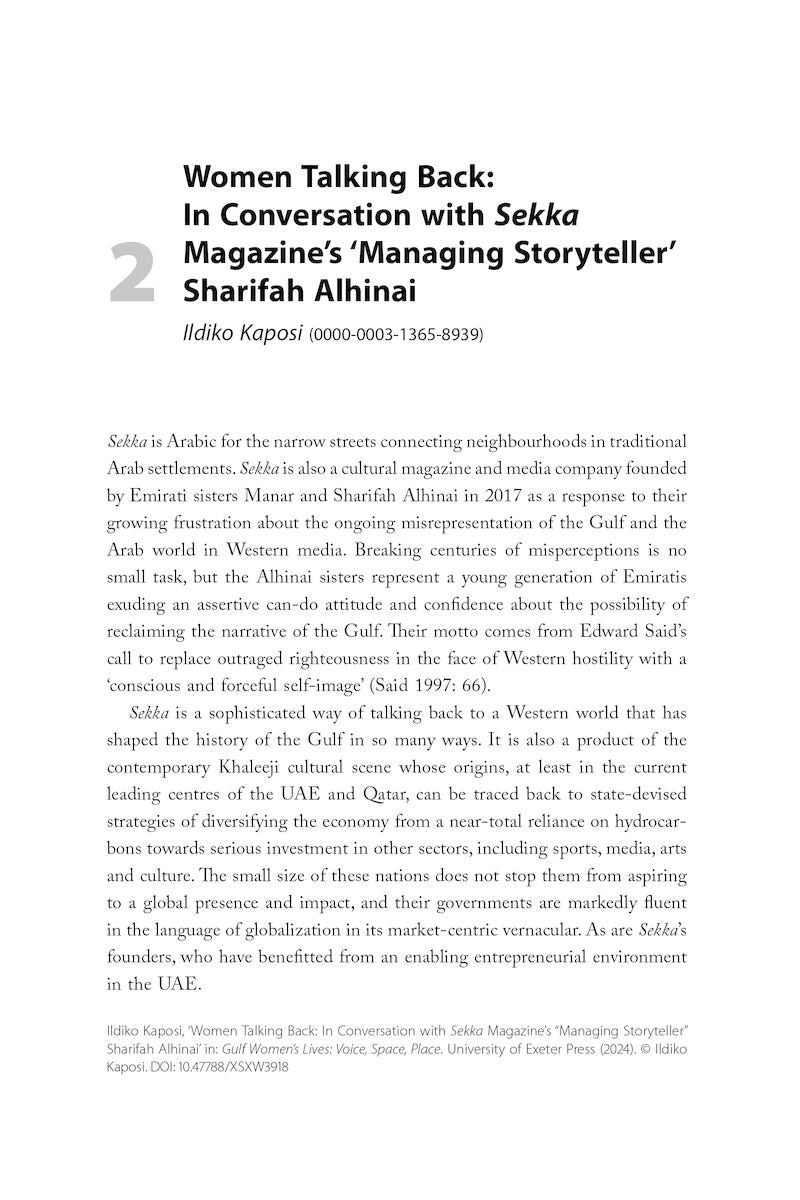
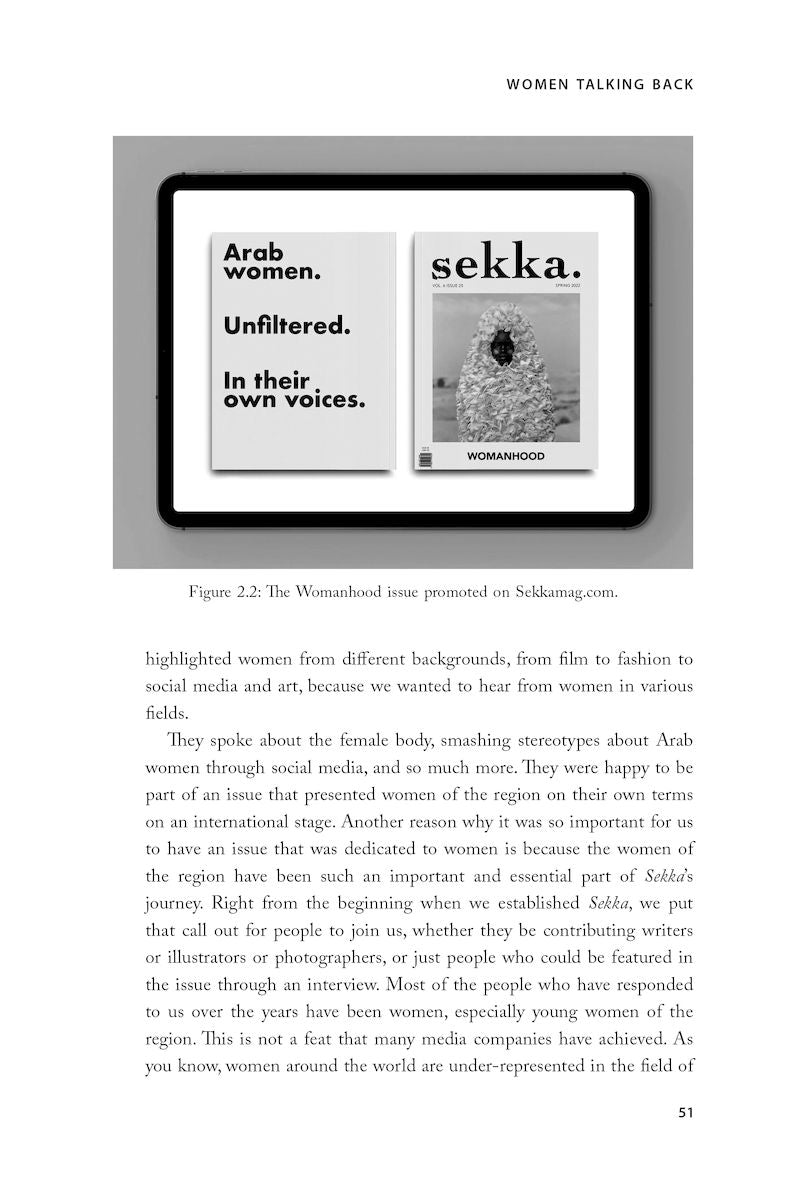
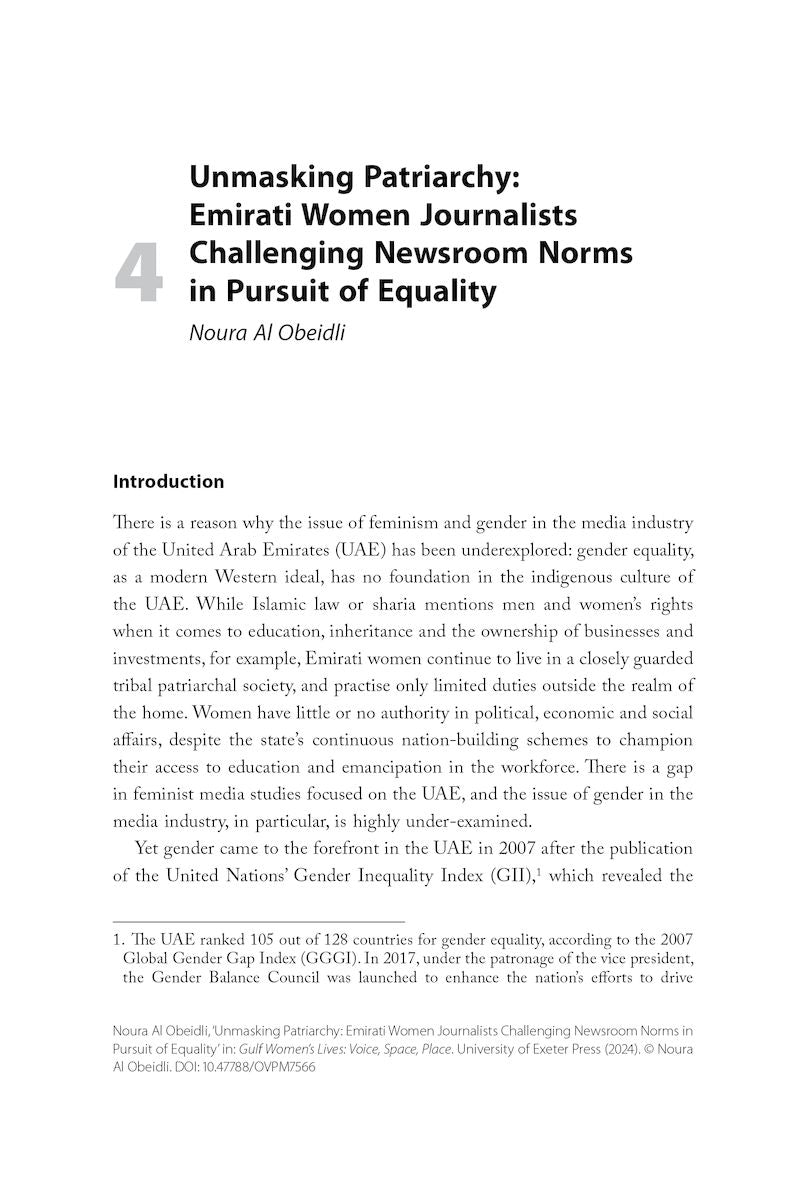
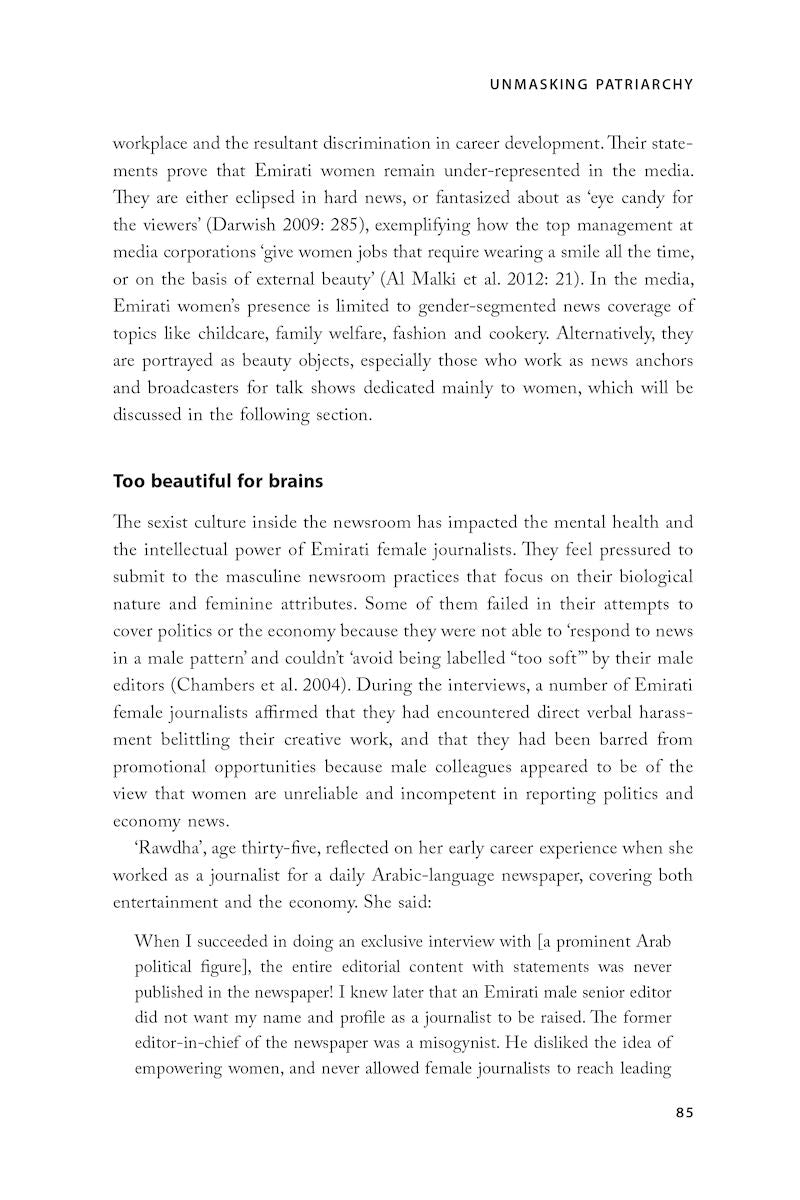
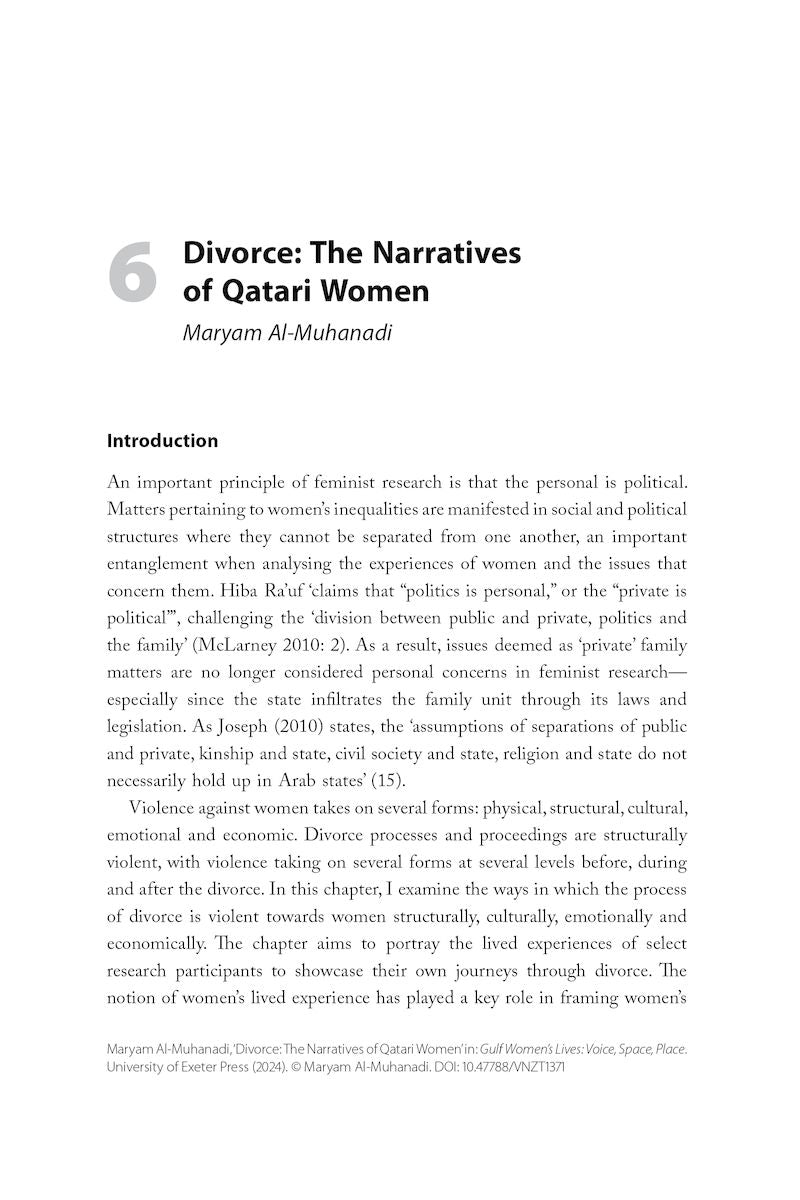
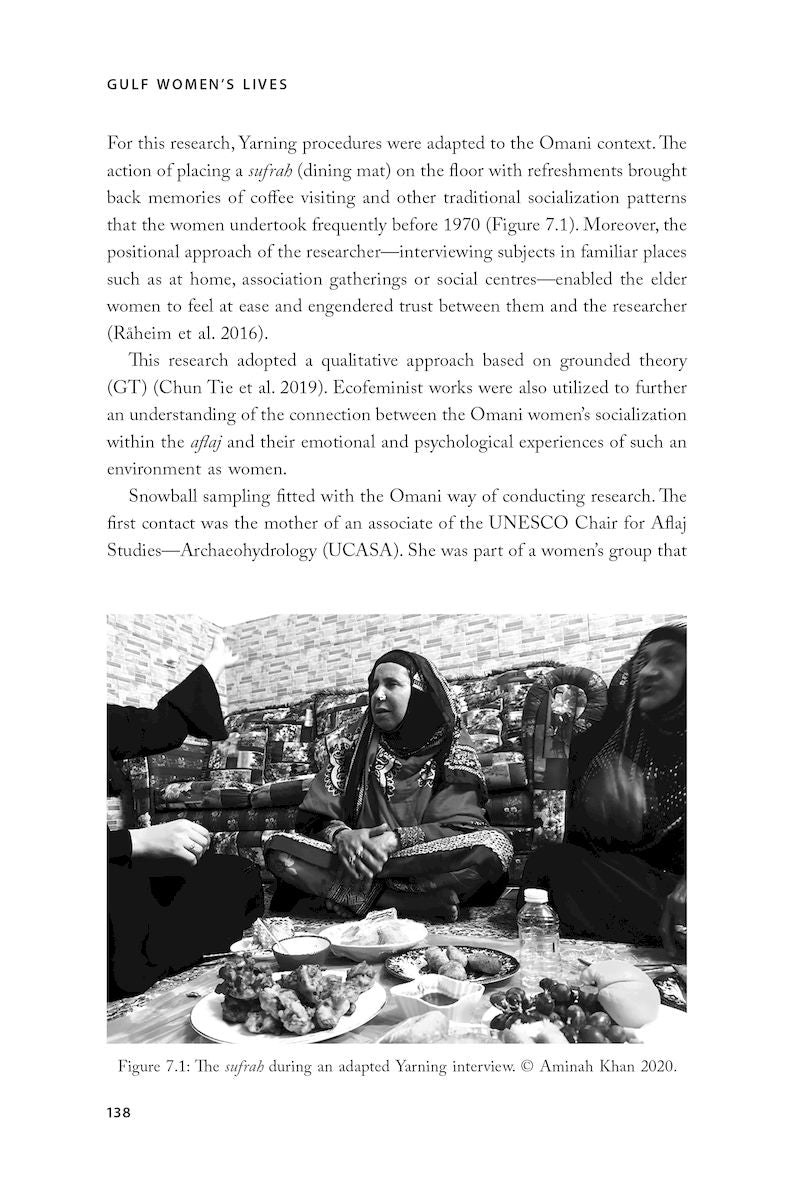
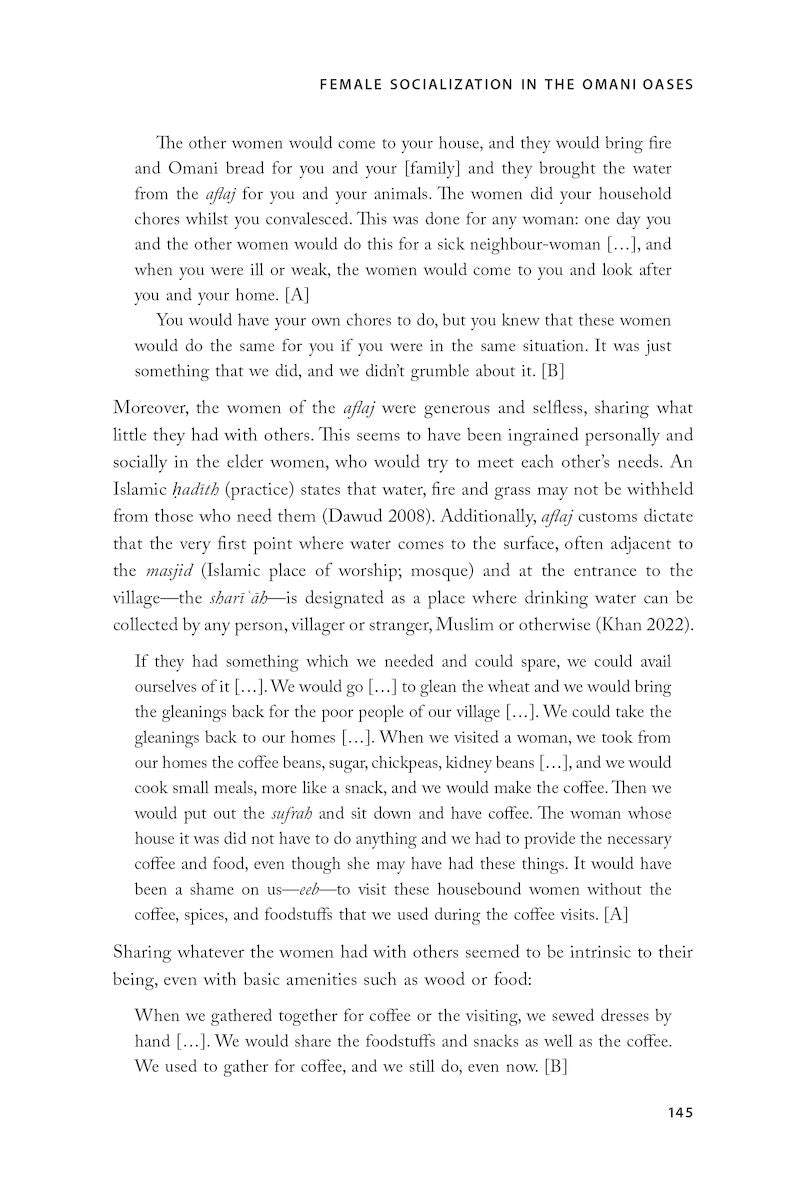
- 210 Pages
This edited volume investigates how Gulf women negotiate spaces of dissent through their writing. The focus on women’s narratives offers critical perspectives on how women in the Gulf construct themselves as gendered selves and authors, how they exist within public and private spaces, and how voice and agency are part of their conversations in various spheres. In the process, the book engages readers in theoretical reflections and conversations with literary works, media, the law, disability studies, and oral narratives from the Gulf.
This timely volume fills in a serious gap in research and contributes to countering stereotypes and prejudices about Muslim and Arab women, specifically those located in the Arabian Gulf. The chapters gathered here challenge narratives of submissiveness, powerlessness, and victimization in order to uncover women’s social, cultural, and political contributions in their countries of origin or residence.
The editors and contributors are specialists of the area, with the majority of them being from the Gulf. They include scholars and students, practitioners and entrepreneurs, all writing from a position of insight that stems from long-term engagement with the region. This offers a wide range of voices and perspectives that enrich the volume with a variety of topics, methodologies, and formats. This multidisciplinarity makes for the book’s broad appeal to the general reading public as well as specialists, practitioners, members of the press and civil society, as well as policymakers. This volume will also be a valuable resource to international audiences with an interest in the region.
Gulf Women’s Lives provides a genuine reflection of the ongoing feminist movements and feminist writings throughout the Gulf states, positioning itself as a credible reference in an area of study that is yet to receive full recognition. It serves as both a multidisciplinary and interdisciplinary exploration, offering a powerful account of voices that exemplify the maturation of literary and scholarly production of women in the Gulf region.
Amal Mohammed Al-Malki, Qatari feminist and scholar author of 'Arab Women in Arab News: Old Stereotypes and New Media' (Bloomsbury, 2012)
This absorbing volume explores women's lives in the Gulf by elevating their voices, engaging public spaces, and traversing new places, both historical and liminal. Through personal chronicles, literary analysis, and political inquiry, the authors persistently ask what "new ways of seeing the world their narratives open up." The result is a more generous context for reflecting on Khaleeji identity, re-centered on the diverse lived experience of women.
Kristin Smith Diwan, The Arab Gulf State Institute, Washington DC
Gulf Women’s Lives is an invitation to listen to the wide range of women’s voices and narratives that have been muffled for falling “in the interstices between official narratives, invented traditions and performed nationalisms”. The nine contributions, all from women, show that it is precisely from the position of the margins that a more central space is claimed, and social and cultural transformation emerge. The volume, carefully edited to astutely create echoes and resonances between chapters mixing literary and social science approaches, opens up multiple feminist conversations in and on the region. As such, Gulf Women’s Lives is also a most-welcome invitation to continue enlarging the polyphony.
Claire Beaugrand, University of Exeter
An exceptional volume with important insights into how women in the Gulf manage interactions with the state and employers; with husbands and families; and with broader society as producers and curators of creative work. Gulf Women's Lives draws particular attention to how identity considerations influence how women navigate the challenges and opportunities they encounter. A must-read for anyone who wants to understand more about Arab Gulf societies.
Lisa Blaydes, Professor of Political Science, Stanford University
Introduction: Revisiting Women in the Gulf Emanuela Buscemi, Shahd Alshammari, and Ildiko Kaposi
DOI: 10.47788/UIJR2942
1. From Stigma to Speech: An Autoethnography of Bedouin Culture, Writing and Illness Shahd Alshammari
DOI: 10.47788/MKWD4340
2. Women Talking Back: In Conversation with Sekka Magazine’s ‘Managing Storyteller’ Sharifah Alhinai Ildiko Kaposi
DOI: 10.47788/XSXW3918
3. Bodies on the Margins: Nonconforming Subjectivities in Gulf Women’s Literature Emanuela Buscemi
DOI: 10.47788/LYZH2631
4. Unmasking Patriarchy: Emirati Women Journalists Challenging Newsroom Norms in Pursuit of Equality Noura Al Obeidli
DOI: 10.47788/OVPM7566
5. A Critical Analysis of Women’s Petitions and Gender Reform in Saudi Arabia Nora Jaber
DOI: 10.47788/JREF4746
Open Access: https://library.oapen.org/handle/20.500.12657/90273
6. Divorce: The Narratives of Qatari Women Maryam Al-Muhanadi
DOI: 10.47788/VNZT1371
7. Female Socialization in the Omani Oases and the Impacts of Modernization on Women’s Identity after 1970 Aminah Khan
DOI: 10.47788/IIJD8427
8. Women’s Narratives and (Im)mobilities in English: Modern Literature from the Arab Gulf Alice Königstetter
DOI: 10.47788/LUYI4361
9. Palestinian Women in the Gulf: Gender, Sexuality and Alienation in Selma Dabbagh’s Fiction Nadeen Dakkak
DOI: 10.47788/NZQW3091
Open Access: https://library.oapen.org/handle/20.500.12657/90274
- 210 Pages







